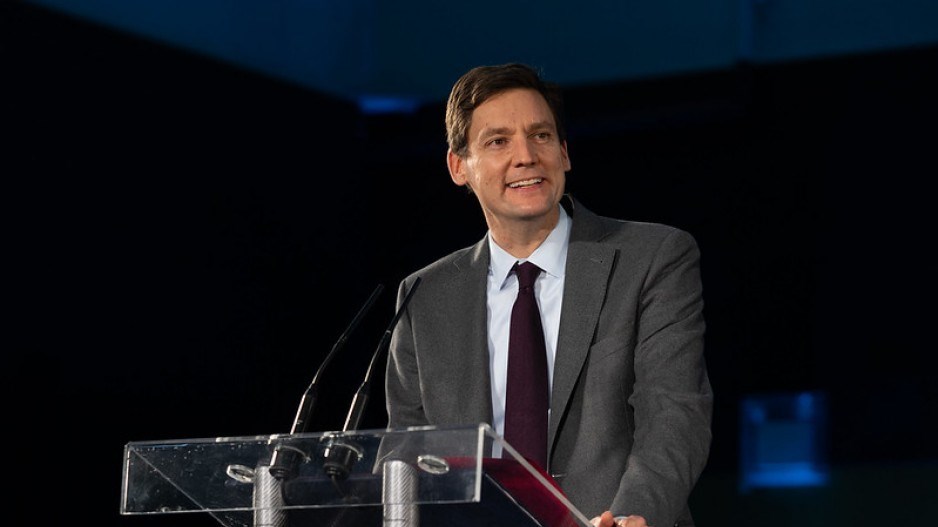Political staffers for B.C. cabinet ministers now make more money than elected MLAs under quiet pay hikes authorized by Premier David Eby’s office that have upended the long-standing financial hierarchy at the B.C. legislature between staff and elected officials.
Chiefs of staff to ministers — often young, hyper-partisans working their way up the New Democratic Party — received what effectively amounted to two large salary increases in the last five months, worth up to as much as $17,129 in total for at least one staffer, the equivalent of a 17 per cent pay hike.
They now stand to make a maximum of $122,100 – almost $7,000 more than the $115,046 base salary for MLAs.
It’s the first time in B.C. history that assistants to ministers have leapfrogged the pay of the elected politicians, a delicate threshold that previous BC Liberal and NDP administrations were hesitant to exceed for fear of blowback from caucus backbenchers.
The Eby administration, however, does not appear worried — though it did not tell caucus MLAs about its decisions for several months, and only just before the publication of this column.
The raises for partisan staffers also contrast sharply with MLAs from all parties who froze their salaries for 2023 in recognition of the affordability challenges being faced by British Columbians due to rising inflation and interest rates.
The decisions allowed some political staff to get salary increases in excess of what was negotiated by teachers, nurses, social workers and other public-sector employees in recent contracts, who received only around a seven per cent pay increase in the past year.
“It is quite sickening,” said BC United leader Kevin Falcon. “I think it just says a lot about their sense of priorities, and also, frankly, how out of touch they are with regular folks out there that are really struggling and having a tough time.”
Premier Eby’s office defended the raises to the approximately 20 chiefs of staff.
“The chiefs of staff in the B.C. government are highly skilled individuals who manage minister offices and provide executive-level support to B.C. ministers to fulfil their mandate of helping address the numerous challenges that people face in B.C.,” read a statement.
Eby's office said the pay hikes will help recruitment during a labour shortage, and that staffers are still paid less than counterparts in Alberta and Ontario. Chiefs of staff were given expanded duties in January, according to the statement.
The NDP government did not make the pay increase decisions public at the time.
“We’ve got rising grocery prices, rising interest rates, and we know through surveys that half of British Columbians are only $200 from being unable to pay their bills every month,” said Falcon.
“Regular British Columbians are having to tighten their belts and watch their pennies and David Eby is secretly giving raises to political staff — and really the worst part about all of this is not even doing the regular disclosure that were always traditional in government.”
The pay raise for chiefs of staff to ministers came in two quiet steps.
The first was an April 1 increase of 6.7 per cent, or almost $7,700 annually, to the maximum “band three” salary category for chiefs of staff.
That occurred because the outgoing administration of Premier John Horgan in 2021 signed a cabinet order linking raises for political staff to raises negotiated by unionized non-partisan civil servants, effectively allowing political officials doing partisan work to piggyback onto pay increases negotiated by the public sector.
The second pay increase came July 1, when top officials in the Eby’s office authorized a one-time “adjustment” of salaries for chiefs of staff inside band three, to address what it said were pay inequities between some people doing the same job.
The “adjustment” depended on the staffer, but it moved many chiefs of staff up within their pay band. At least one person was able to obtain a 10 per cent adjustment, plus the 6.75 per cent overall salary increase — bumping their salary within five months by $17,129, or 17.4 per cent, to to $115,429.
The “adjustment” and 6.7 per cent increases were not contained in any publicly-released records within the last five months, due to changes the NDP has made to limit transparency of salaries for political staff.
In the past, cabinet orders posted on the government website also included the salary of political staffers when hired. The NDP has stripped that provision. Now only the band is provided.
The new rules have the effect of creating a two-year delay on full annual salary information for partisan staff through government’s year-end financial documents, called public accounts.
Ironically, the public accounts released this week does not reflect the two pay increases, because they were made after the March 31 financial year cutoff.
The double pay hikes come amid Opposition criticism about the rising number of political staff hired by the NDP, including in the premier’s office.
Maximum band salaries for all levels of political staff have increased at least 22 per cent since the NDP government took office in 2017, according to the Opposition. The budget for more than 140 political staff working inside ministers offices has also increased $10.5 million since 2017.
“It’s all on the taxpayer’s dime,” said Falcon. “I find it appalling and sickening and I’m pretty sure most British Columbians will too.”
Rob Shaw has spent more than 15 years covering B.C. politics, now reporting for CHEK News and writing for Glacier Media. He is the co-author of the national bestselling book A Matter of Confidence, host of the weekly podcast Political Capital, and a regular guest on CBC Radio. [email protected]




